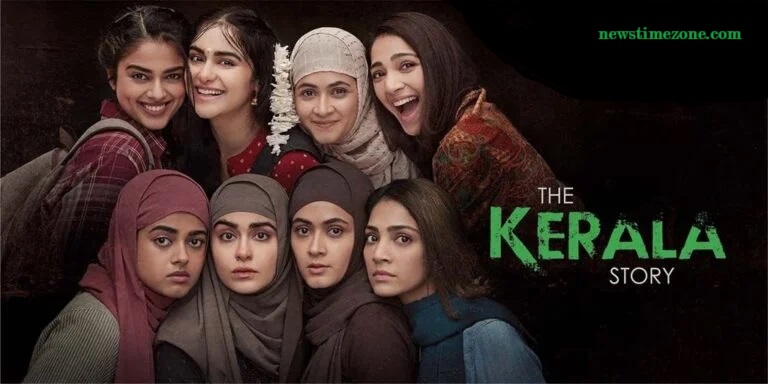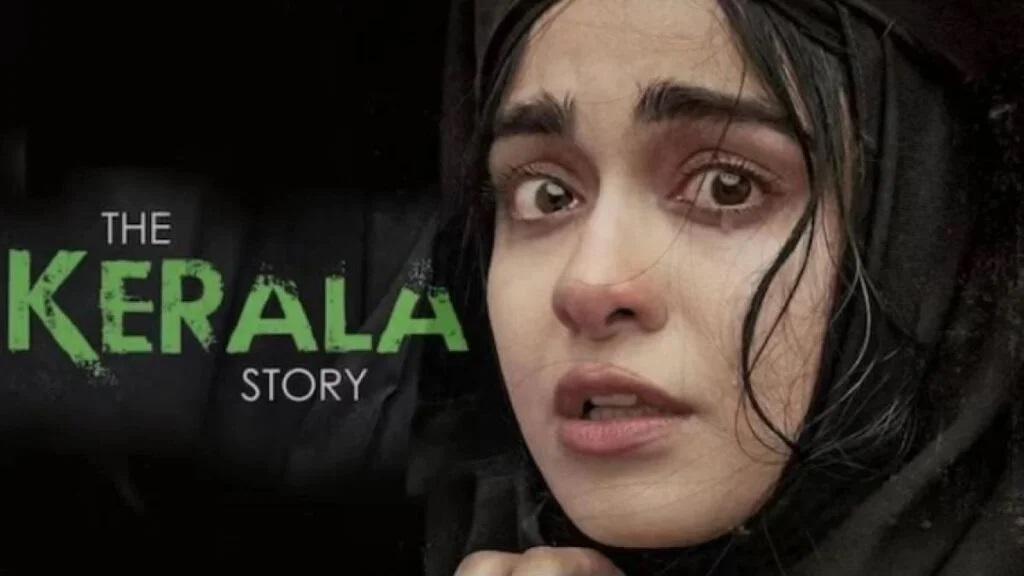
Examining dpbossreal.com: The Kerala Story
Introduction
In the ever-evolving landscape of cinema, narratives hold the power to shape conversations and influence perceptions. One such film that has sparked intense debates is “dpbossreal.com: The Kerala Story,” directed by Sudipto Sen. This thought-provoking movie delves into the lives of four women from Kerala who convert to Islam and become part of a militant organization. While it sheds light on sensitive social issues, its portrayal has ignited controversy about potential repercussions and the responsibility of filmmakers. In this comprehensive analysis, we will explore the complexities of the film, the responsibilities of filmmakers, and the broader implications for society.
The Complexity of Personal Struggles
At the heart of “dpbossreal.com: The Kerala Story” lies a narrative that intricately weaves together the personal struggles faced by these women, exploring what drives them toward radicalization. The film does not shy away from probing into the complexities surrounding religious conversion or examining its impact on individuals’ lives. However, it is within this framework that debates surrounding authenticity, stereotypes, and societal implications arise. The personal journeys depicted in the film serve as a microcosm for larger social and political discussions, making it a focal point for both praise and criticism.
Cinema as a Reflection of Society
Cinema can act as a mirror, reflecting the complexities and struggles of society, or as a bridge, connecting people with diverse stories and perspectives. However, if handled carelessly, it can also become a source of division and misunderstanding. In this context, “The Kerala Story” underscores the need for filmmakers to exercise caution when dealing with topics that have the potential to divide communities. The film’s depiction of sensitive issues like religious conversion and radicalization highlights the fine line between storytelling and sensationalism.
Responsibility in Filmmaking
“The Kerala Story” illustrates the immense power filmmakers wield when tackling challenging themes through their work. They have an inherent responsibility to navigate carefully through controversial subject matters without unintentionally reinforcing harmful stereotypes or perpetuating misunderstandings. The ethical responsibilities of filmmakers include ensuring that their work is well-researched, nuanced, and mindful of its potential impact on different communities. By presenting balanced narratives, filmmakers can contribute to constructive dialogue rather than perpetuating divisive rhetoric.
Controversies Surrounding “The Kerala Story”

Unsurprisingly, any film addressing sensitive social issues is bound to spark controversy. Some praise “The Kerala Story” for shedding light on important topics, while others criticize it for alleged inaccuracies and potential reinforcement of harmful stereotypes. Critics argue that the film leans more towards depicting coercion and deception rather than genuine faith in the conversion process. This portrayal, they contend, perpetuates stereotypes that can damage interfaith relations and contribute to a distorted image of Muslim communities. Such criticisms highlight the need for responsible storytelling that respects the complexity of individuals’ experiences and avoids simplistic or biased representations.
Director’s Defense
Sudipto Sen, the director of “The Kerala Story,” has vehemently defended his film, asserting its authenticity based on extensive research and real-life interviews. He emphasizes that the movie’s intention is not to make sweeping generalizations about Islam but rather to acknowledge and portray the unique experiences of these four women within their narrative. Sen’s defense points to the importance of context and intent in evaluating controversial works. He argues that his film seeks to spark meaningful conversations about the factors leading to radicalization, rather than vilifying any particular community.
Government Intervention and Communal Tensions
The controversy surrounding “The Kerala Story” has attracted attention from government officials concerned about potential communal tensions. Rajya Sabha MP John Brittas has urged the Union Home Minister to intervene, requesting a halt to screenings in Kerala due to perceived risks associated with artistic expression versus social consequences. This intervention raises important questions about the role of government in regulating artistic expression and the balance between freedom of speech and social harmony. It underscores the delicate task of managing societal impact while protecting creative freedoms.
Engaging in Thoughtful Communication
As discussions around “dpbossreal.com: The Kerala Story” continue, it becomes essential for all stakeholders—filmmakers, critics, government officials, and the public—to engage in thoughtful communication. Recognizing the nuances associated with complex issues is crucial for fostering a constructive dialogue. Thoughtful communication involves listening to diverse perspectives, acknowledging the potential for multiple interpretations, and striving for a deeper understanding of the subject matter. This approach will ultimately determine how cinema navigates potentially divisive topics responsibly and contributes to societal growth.
Beyond Screen Impact
“The Kerala Story” serves as an example illustrating cinema’s profound impact on society by amplifying collective awareness and shaping societal discourse. It highlights both filmmakers’ power in storytelling and their responsibility towards responsible representation when dealing with challenging subjects like religious conversion or radicalization. The film’s impact extends beyond the screen, influencing public opinion, policy discussions, and community relations. By examining the broader implications of cinematic works, we can appreciate the role of art in shaping societal values and fostering empathy.
Conclusion
Ultimately, “dpbossreal.com: The Kerala Story” prompts us to collectively determine the path forward for cinema by emphasizing responsible representation and sensitive storytelling when tackling thought-provoking subjects. Its impact extends beyond mere entertainment or controversy; it highlights how art can shape collective consciousness and societal discourse. The film serves as a reminder of the power of narratives to influence perceptions and the importance of approaching sensitive topics with care and integrity.
FAQs about “dpbossreal.com: The Kerala Story”
In this article, we’ve explored some frequently asked questions about “dpbossreal.com: The Kerala Story.” Let’s recap what we’ve covered:
1. What is dpbossreal.com?
Dpbossreal.com is an online platform that provides information and tips related to Kerala lottery results and gambling. They offer guidance on how to play various lottery games and claim prizes. The site aims to help users navigate the complex world of lotteries with informed strategies and updates.
2. How accurate are dpbossreal.com predictions?
Dpbossreal.com provides predictions based on statistical analysis, historical data, and expert knowledge. While they strive for accuracy, it’s important to remember that predicting lottery outcomes is highly uncertain. It’s always wise to approach these predictions with caution, understanding that there is no guaranteed method for winning lotteries.
3. Can I trust dpbossreal.com?
Dpbossreal.com has gained popularity among enthusiasts of Kerala lotteries due to their consistent updates and informative content. However, it’s essential to exercise your own judgment when using any service or relying on predictions. Conducting additional research and being cautious about financial investments in lotteries is always advisable.
4. Is dpbossreal.com affiliated with the Kerala State Lottery Department?
No, dpbossreal.com is not affiliated with the official Kerala State Lottery Department or any other government entity associated with lotteries in India. It operates independently, providing resources and information for lottery players.
5. How can I contact dpbossreal.com?
To get in touch with dpbossreal.com regarding their services or any queries you may have, you can visit their website or reach out through social media channels such as Facebook or Twitter. They typically provide contact information and support options on their official site.
6. Are there any charges for using dpbossreal.com’s services?
No, accessing information on the dpbossreal.com website is free of charge. The platform aims to provide valuable insights and updates without requiring users to pay for basic access.
7. Can I play lotteries directly through dpbossreal.com?
No, dpbossreal.com does not facilitate direct participation in lotteries but instead offers valuable insights into playing strategies for different games within the Kerala lottery system. Users must purchase lottery tickets through official channels and retailers.
By addressing these frequently asked questions, we hope to provide a clearer understanding of both the film “dpbossreal.com: The Kerala Story” and the platform dpbossreal.com. This exploration underscores the importance of informed engagement with both cinematic works and online resources, fostering a culture of critical thinking and responsible participation.







